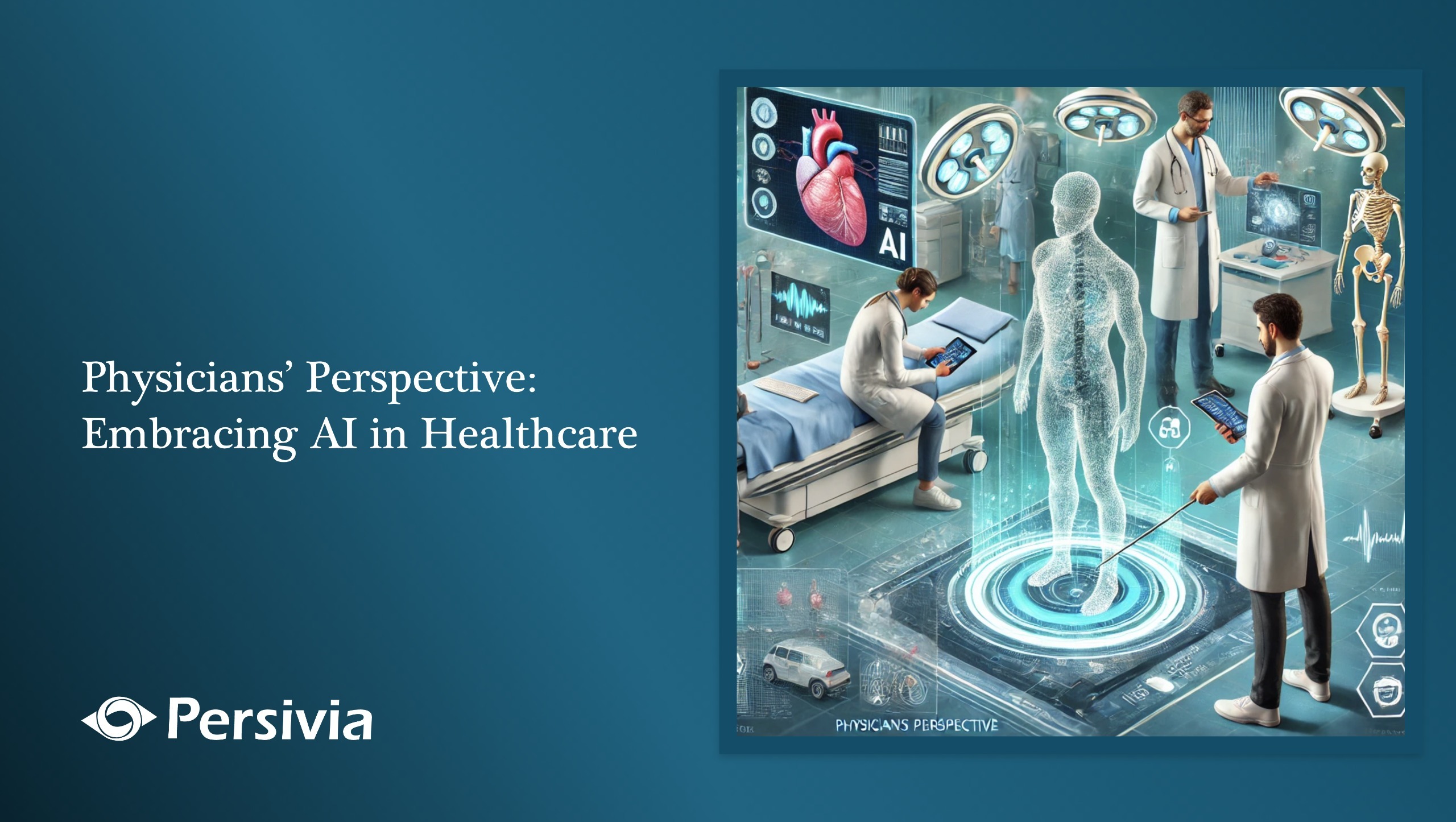Integrating artificial intelligence AI in healthcare promises to enhance operational efficiency, mitigate physician burnout, optimize costs, and augment workforce productivity. However, the successful adoption of AI in clinical settings relies on addressing critical challenges, and overcoming these hurdles is crucial for ensuring a seamless implementation of AI technologies in the healthcare domain.
AI can potentially improve operational efficiency, reduce burnout, reduce costs, and make the workforce efficient. However, there are obstacles to AI adoption, such as organizations needing to check their workforce readiness and data infrastructure.
According to a recent American Medical Association (AMA) survey, physicians are cautiously optimistic about using artificial intelligence AI in the healthcare industry. Nearly two-thirds of the 1,081 physicians surveyed acknowledged the advantages of using AI, although only 38% were actively utilizing it at the time of the survey. Meanwhile, 41% of respondents were excited and concerned about AI’s potential applications in healthcare. The survey highlighted several areas where physicians see AI as particularly beneficial. These include diagnostic capabilities (72%), work efficiency (69%), clinical outcomes (61%), care coordination (56%), patient convenience (56%) and patient safety (56%).
Dr. Jesse M. Ehrenfeld, AMA President and co-chair of the AMA’s AI committee, emphasized the importance of maintaining a human touch in healthcare. “Whatever the future of health care looks like, patients need to know there is a human being on the other end helping guide their course of care,” he stated.
Transparency and Ethical Deployment of AI in Healthcare
The AMA has developed a set of AI Principles to guide the ethical and responsible development and deployment of AI in healthcare. These principles emphasize the need for transparency, equity, and accountability. Transparency is crucial when insurers use AI or algorithmic systems to make claim determinations or set coverage limits. The AMA urges payers to disclose the use of such systems, provide evidence of non-discrimination, and allow treating physicians to discuss medical necessity directly with a human before issuing adverse determinations.
Building Physician Trust
To build trust in AI among physicians and healthcare professionals, Dr. Ehrenfeld urged policymakers to provide clear regulatory guidance, demonstrate progress toward payment for high-quality AI-enabled solutions, limit physician liability exposure for AI performance, and support collaboration between regulators and AI developers. According AMA’s Survey, 78% of respondents wanted clear information on how AI decisions are made, demonstrated usefulness and efficacy, and information on how AI’s performance is monitored.
Use Cases of AI in Healthcare
Physicians expressed enthusiasm for several AI use cases, including documentation of billing codes, medical charts, or visit notes (54%), automation of insurance prior authorization (48%), and creation of discharge instructions, care plans, or progress notes (43%). As AI continues to evolve in the healthcare industry, the AMA emphasized the need for physicians, residents, and medical students to have a foundational knowledge base. As Dr. Ehrenfeld stated, “Above all else, health care AI must be designed, developed and deployed in an ethical, equitable, responsible and transparent”.
Embracing AI with Pragmatism
Despite concerns, physicians express enthusiasm for AI use cases such as documentation, automation of insurance prior authorization, and creation of care plans. However, challenges still need to be addressed, including the need for quality medical data, clinically irrelevant performance metrics, and methodological research flaws. Physicians favor AI tools’ potential to save time, improve monitoring, and enhance management difficulties. However, they remain cautious about industry claims that AI will replace physicians.
The Way Forward
The healthcare industry recognizes the true potential of artificial intelligence (AI) but acknowledges the need for a solid foundational knowledge base as this technology evolves. While advanced AI models still need to be ready for widespread deployment due to data inconsistencies, research limitations, stability concerns, and privacy issues, companies like Persivia are paving the way with their Advanced AI models.
Trained on the most comprehensive data and tightly integrated into clinical workflows. Persivia’s AI model aims to deliver reliable outputs free from hallucinations.
With a 15-year heritage of driving clinical excellence and IT innovation, Persivia is well-positioned to provide future-ready digital health solutions to organizations across the country. Physicians emphasize that AI must be designed, developed, and deployed ethically, responsibly, and transparently. Their cautious approach will be instrumental in navigating the responsible integration of AI-enabled solution, ensuring it enhances patient care while upholding ethical standards and preserving the human touch in healthcare delivery.
Table of Contents
